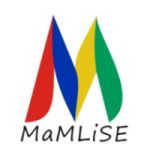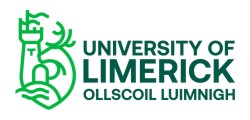The University of Limerick is a well-established higher education institution in Ireland. It has a student body of approximately 16,000 and around 3,000 staff. UL offers a range of programmes up to doctorate and post-doctorate levels in the disciplines of Arts, Humanities, Social Sciences, Business, Education, Health Sciences, Science and Engineering. One of four academic faculties at the UL is the Faculty of Arts, Humanities and Social Science. It is a vibrant centre of critical thinking and a generator of nationally and internationally esteemed scholarship. It prides itself on the quality of its teaching and its commitment to research in a disciplinary and interdisciplinary context where debate and discussion are integral features in the development of knowledge and of analytical skills. The School of Modern Languages and Applied Linguistics is committed to the University of Limerick’s internationalisation strategy by enhancing and promoting approaches to collaborative and multilingual teaching and research.
UL seeks to develop language graduates who are proficient language users, knowledgeable about world literatures and cultures, highly competent plurilingual communicators, interculturally aware and ethically responsible global citizens.
The University of Limerick aims to build a strong community which will:
• Promote language learning and awareness across society
• Shape language and (multi)-cultural attitudes/policies
• Contribute to the growth of a multilingual community
• Collaborate in a team environment
• Help strengthen local and global partnerships
• Continue independent life-long language learning.
The School of MLAL, part of the Faculty of Arts, Humanities and Social Sciences at the University of Limerick, engages in teaching and research across a wide range of subjects whose common concern is the acquisition, analysis and interpretation of a range of languages and their associated cultures. Composed of French, German, Japanese, Spanish, and Teaching English to Speakers of Other Languages (TESOL) & Linguistics sections, the School is also home to two dynamic research centres: the Centre for Applied Language Studies (CALS), and the Centre for Irish-German Studies. The staff of the TESOL and Linguistics Section are active, internationally recognised researchers in a range of areas, including the nature and development of professionals within the TESOL community; varieties of English, including Irish English, professional discourse and classroom interaction; World Englishes and the impact of globalization on language and language teaching; the relationship between established and emerging technologies and language pedagogy; creativity and authenticity in materials design and development; and pushing the boundaries of linguistic description and understanding more generally.
The TESOL / Linguistics Section of the University of Limerick has been involved for more than twenty years in L2 pedagogy and L2 teacher education and runs a very successful MA TESOL programme for teachers at both pre-service and experienced/in-service teachers. It is also involved in preparing language specialist teachers for secondary schools in Ireland with a focus on EAL pedagogy. It also has expertise and experience in CLIL and EMI education. The aim of this department is to keep abreast of, and help shape developments in ESOL pedagogy in schools in the European context.
The Center has recently been involved in UL K4C Languages and Culture Portfolio devoted to completing the K4C Mentor Training Programme. It is also involved in projects e.g.:
• BLÁTHÚ Irish language support for Parents
• COMMUNITY CHOIR A Therapeutic Choir for Parents
• CONNECTING LANGUAGE COMMUNITIES IN LIMERICK (CLCL)
• UL PRACTICUM IN TESOL English language classes for Refugees and Asylum Seeker
The Centre also works in close cooperation with a community-based government agency called the Limerick/Clare ETB which provides English language and vocational training to migrant workers and disadvantaged Irish youth to help them gain educational qualifications and literacy/proficiency in English.
Team members:
Dr. Angela Farrel has been a teacher and teacher educator in TESOL/EAL for thirty years. She has researched and published extensively in TESOL and EAL education, for example: Farrell, A., and Baumgart, J. (2019) ‘Building Partnerships between Post-Primary Schools and ESOL Teacher Education Programmes in the Irish Context’, in Mishan, F., (ed.) ESOL Provision in the UK and Ireland: Challenges and Opportunities, Amsterdam: Peter Lang. She has experience in materials development and teacher education for in-service teachers in EAL pedagogy, which is relevant to the focus and scope of the proposed project.
Dr. Fiona Farr is the current Director of the Centre for Applied Language Studies (CALS), established in 1997, which is the largest research centre in the Faculty of Arts, Humanities and Social Sciences and brings together members of faculty, postgraduate students and researchers from the School of Modern Languages and Applied Linguistics as well as from other disciplines across the University. CALS provides a forum for the exchange of ideas and the development of research projects in applied language studies across a range of languages within the University as well as serving as a focal point for national and international links in this area. Researchers in CALS have organized around three clusters: New Environments for Language Learning; Discourse, Society and Identity; and Plurilingualism and Language Policy.
Dr. Elaine Riordan is a lecturer in TESOL in the School of Modern Languages and Applied Linguistics. She is involved in English language teacher education and linguistics at undergraduate and postgraduate levels. She is a member of the Centre for Applied Language Studies (CALS), and the Inter-Varietal Applied Corpus Studies (IVACS) Research Group. She has been involved in many EU funded projects, the Backbone Project, which developed multi-modal corpora and accompanying materials for language learning across a range of European languages and varieties. More recently she worked on the JOYN 2.0 and Euroversity projects (EU Lifelong Learning in conjunction with the University of Hull, UK), both of which are relevant to the project’s aims.
Michelle Daly is a full-time PhD student in the School of Modern Languages and Applied Linguistics. She has extensive experience in EFL teaching in many contexts and settings, namely in the UAE, China, the UK, and Ireland. Against the backdrop of globalisation and internationalisation, Michelle’s research broadly explores the pressing need for individuals to develop the ability to move sensitively and intelligently from one cultural context to another. More specifically, this research study ‘investigates the perceptions and experiences of Irish teachers and local managers working in the Arabian Gulf EFL context in relation to intercultural awareness and training’. Her research highlights the importance of intercultural training needs and competence with the potential of contributing to not only teacher education but, also the training of other professional groups.
Team member from the School of Education, Faculty of Education & Health Sciences, University of Limerick, Castletroy, Co. Limerick, V94 T9PX, Ireland.
E-mail Address: mary.masterson@ul.ie
Web pages:
https://www.ul.ie/research/dr-mary-masterson
https://www.drmarymasterson.com/
Associate Professor Mary Masterson is an Associate Professor in Education. She is committed to preparing teachers for the complexities of a diverse and interconnected world. Her interdisciplinary expertise ensures that she integrates knowledge from various fields to address contemporary issues in education, such as intercultural education, global citizenship, language sensitive teaching and digital technologies. She delivers a range of foundation studies modules in the School of Education, including contemporary issues in education, history of education, policy and context, diversity & inclusion and curriculum policy and reform.
She holds a national position as the National eTwinning/Erasmus Ambassador for Initial Teacher Education in Ireland. In this capacity, she actively promotes the eTwinning programme to both pre-service and practicing teachers, providing pedagogical and technical support through workshops. The eTwinning programme, which she champions, facilitates international exchanges, peer learning, multidisciplinary learning, and innovative pedagogy. She supports international collaborations at school and in higher education to develop critical thinking, intercultural skills, and communication skills – attributes highly sought after in today’s world.
The School of Education at the University of Limerick is Ireland’s largest single provider of post-primary teacher education. With a team that has expertise in a distinctive combination of disciplines, a range of professional teacher education programmes in both initial and continuing teacher education are offered. The programmes span undergraduate and postgraduate teacher education, postgraduate diplomas and master’s and PhD studies.
The School of Education is the academic home to almost 2,000 students with programmes offered on campus and at external locations across Ireland. Complementing these programmes of education is a vibrant research agenda focused on examining key issues in education in both local and global contexts. The School of Education is very proud of its national and international reputation, which is reflected in the current international rankings. The School of Education is ranked in the top 101-150 in the world for Education (QS rankings).

